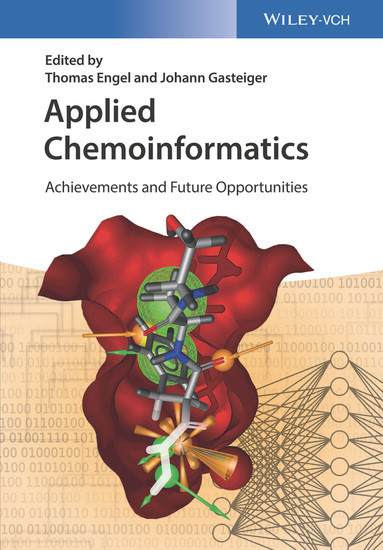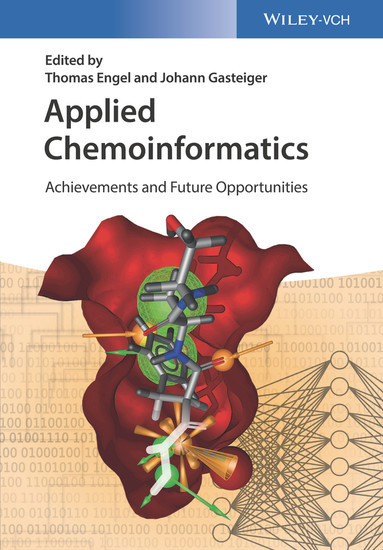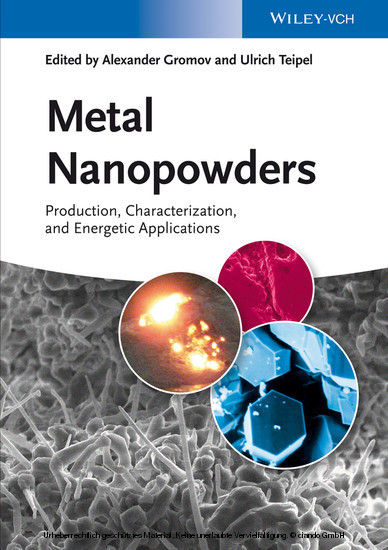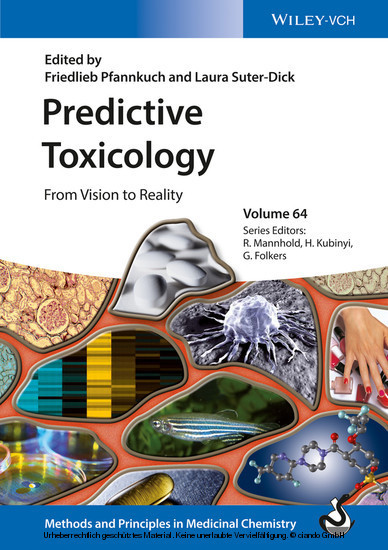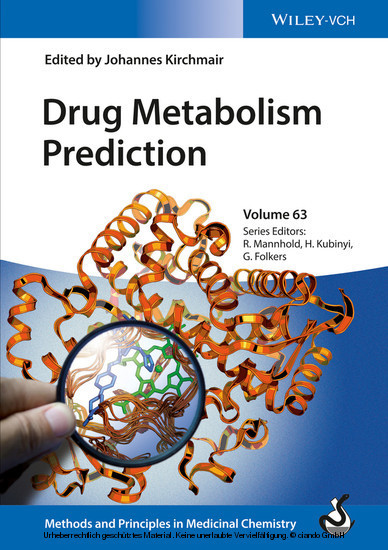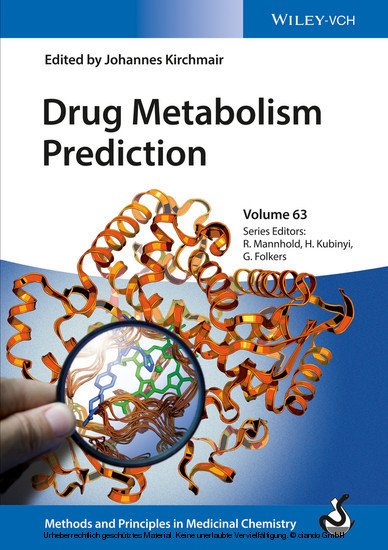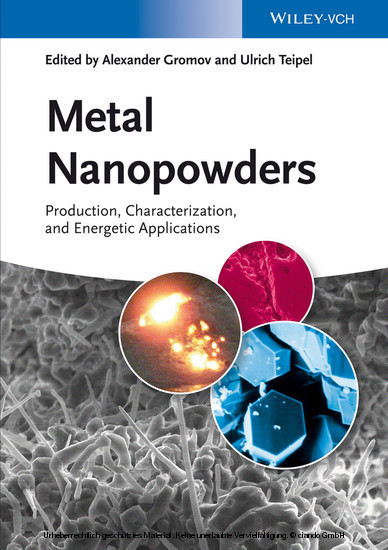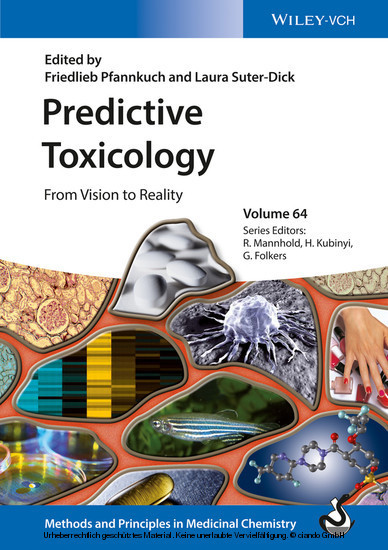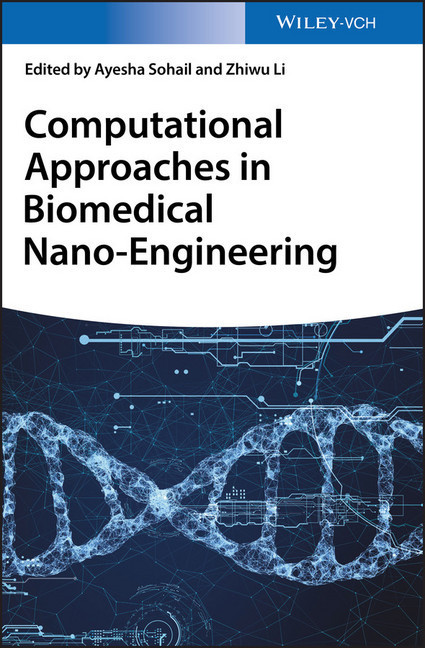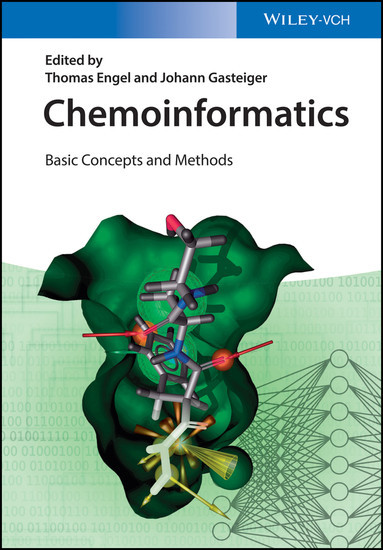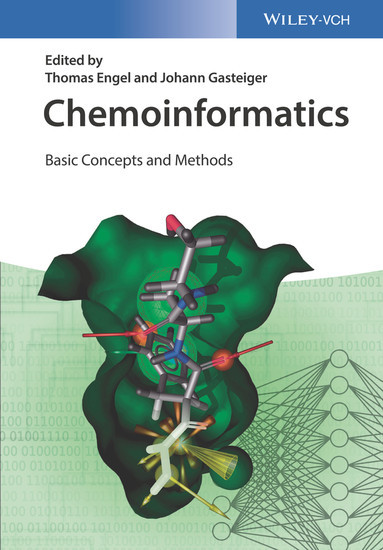Applied Chemoinformatics
Achievements and Future Opportunities
Edited by world-famous pioneers in chemoinformatics, this is a clearly structured and applications-oriented approach to the topic, providing up-to-date and focused information on the wide range of applications in this exciting field.
The authors explain methods and software tools, such that the reader will not only learn the basics but also how to use the different software packages available. Experts describe applications in such different fields as structure-spectra correlations, virtual screening, prediction of active sites, library design, the prediction of the properties of chemicals, the development of new cosmetics products, quality control in food, the design of new materials with improved properties, toxicity modeling, assessment of the risk of chemicals, and the control of chemical processes.
The book is aimed at advanced students as well as lectures but also at scientists that want to learn how chemoinformatics could assist them in solving their daily scientific tasks.
Together with the corresponding textbook Chemoinformatics - Basic Concepts and Methods (ISBN 9783527331093) on the fundamentals of chemoinformatics readers will have a comprehensive overview of the field.
Johann Gasteiger is Professor emeritus of Chemistry at the University of Erlangen-Nuremberg, Germany and the co-founder of 'Computer-Chemie-Centrum'. He has received numerous awards and is a member of several societies and editorial boards. His research interests are in the development of software for drug design, simulation of chemical reactions, organic synthesis design, simulation of spectra, and chemical information processing by neural networks and genetic algorithms.
Thomas Engel is is coordinator at the Department of Chemistry and Biochemistry of the Ludwig-Maximilians-Universitat in Munich, Germany. He received his academic degrees at the University of Wurzburg. Since 2001 he is lecturer at various universities promoting and establishing courses in scientific computing. He is also a member of the Chemistry-Information-Computer section (CIC) of the GDCh and the Molecular Graphics and Modeling Society (German section).
The authors explain methods and software tools, such that the reader will not only learn the basics but also how to use the different software packages available. Experts describe applications in such different fields as structure-spectra correlations, virtual screening, prediction of active sites, library design, the prediction of the properties of chemicals, the development of new cosmetics products, quality control in food, the design of new materials with improved properties, toxicity modeling, assessment of the risk of chemicals, and the control of chemical processes.
The book is aimed at advanced students as well as lectures but also at scientists that want to learn how chemoinformatics could assist them in solving their daily scientific tasks.
Together with the corresponding textbook Chemoinformatics - Basic Concepts and Methods (ISBN 9783527331093) on the fundamentals of chemoinformatics readers will have a comprehensive overview of the field.
Johann Gasteiger is Professor emeritus of Chemistry at the University of Erlangen-Nuremberg, Germany and the co-founder of 'Computer-Chemie-Centrum'. He has received numerous awards and is a member of several societies and editorial boards. His research interests are in the development of software for drug design, simulation of chemical reactions, organic synthesis design, simulation of spectra, and chemical information processing by neural networks and genetic algorithms.
Thomas Engel is is coordinator at the Department of Chemistry and Biochemistry of the Ludwig-Maximilians-Universitat in Munich, Germany. He received his academic degrees at the University of Wurzburg. Since 2001 he is lecturer at various universities promoting and establishing courses in scientific computing. He is also a member of the Chemistry-Information-Computer section (CIC) of the GDCh and the Molecular Graphics and Modeling Society (German section).
| ISBN | 9783527806546 |
|---|---|
| Artikelnummer | 9783527806546 |
| Medientyp | E-Book - ePUB |
| Copyrightjahr | 2018 |
| Verlag | Wiley-VCH |
| Umfang | 648 Seiten |
| Sprache | Englisch |
| Kopierschutz | Adobe DRM |

